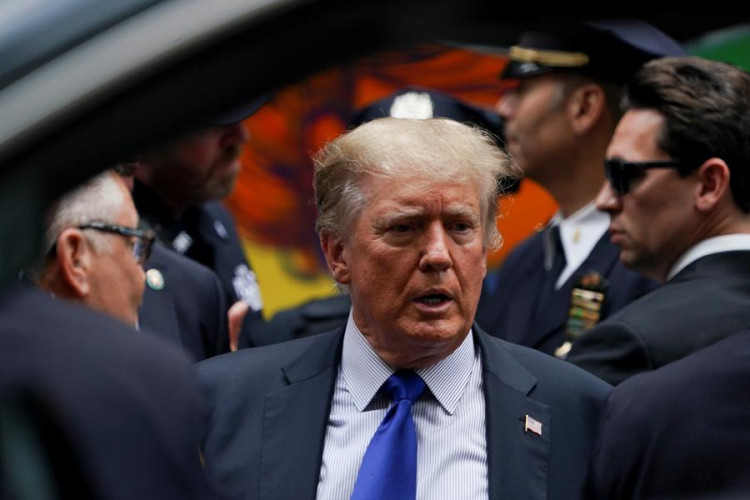President Donald Trump has signed an executive order imposing sanctions on the International Criminal Court (ICC) in response to its ongoing investigation into alleged war crimes committed by Israel in Gaza. The order, issued Thursday, claims the ICC has taken "illegitimate and baseless actions" by issuing an arrest warrant for Israeli Prime Minister Benjamin Netanyahu and former Defense Minister Yoav Gallant.
Neither the United States nor Israel recognizes the jurisdiction of the ICC, which was established in 2002 to prosecute crimes against humanity, genocide, and war crimes when national governments fail to do so. "The ICC has no jurisdiction over the United States or Israel," the executive order states, adding that its actions "set a dangerous precedent" and "threaten to infringe upon the sovereignty of the United States."
The sanctions target ICC officials involved in investigations against the U.S. and its allies, restricting their access to U.S. financial systems, freezing assets, and prohibiting them and their families from entering the country. The administration has framed the move as part of its broader effort to defend Israel against what Trump's national security adviser, Mike Waltz, called an "antisemitic bias" at the ICC.
The executive order was signed as Netanyahu was visiting Washington, where he met with Trump at the White House on Tuesday and later held discussions with lawmakers on Capitol Hill.
The decision to sanction the ICC has drawn condemnation from human rights organizations and international legal experts, who argue that it undermines the rule of law and sets a troubling precedent for global accountability. "Victims of human rights abuses around the world turn to the International Criminal Court when they have nowhere else to go, and President Trump's executive order will make it harder for them to find justice," said Charlie Hogle, staff attorney for the American Civil Liberties Union's National Security Project.
Sarah Yager, Washington director for Human Rights Watch, described the order as "beyond the pale," adding, "You can disagree with the court and the way it operates, but sanctioning its officials is an attack on accountability and free speech."
The ICC issued arrest warrants in May 2024 for Netanyahu and Gallant, citing "reasonable grounds to believe" they bore criminal responsibility for war crimes in Gaza following Israel's military response to Hamas' attack in October 2023. Tens of thousands of Palestinians, including children, have been killed since the start of the conflict. The ICC also issued a warrant for a Hamas commander, Mohammed Deif, who was later killed.
While the United States has historically been skeptical of the ICC, the relationship has evolved. In 2020, Trump sanctioned former ICC chief prosecutor Fatou Bensouda over her investigation into alleged war crimes committed by U.S. forces in Afghanistan. Those sanctions were later lifted by President Joe Biden, who re-engaged with the court, particularly after it issued an arrest warrant for Russian President Vladimir Putin over war crimes in Ukraine.
However, key Republican lawmakers have remained deeply critical of the ICC. Senator Lindsey Graham, who previously facilitated meetings between ICC prosecutor Karim Khan and U.S. officials, now calls the court a "rogue institution." "This is a kangaroo court," Graham said. "The legal theory they're using against Israel has no limits, and we're next."
The sanctions, which could hinder ICC officials' ability to travel and access technology essential to their investigations, have sparked pushback from U.S. allies. The Netherlands, home to the ICC's headquarters in The Hague, has urged member states to "cooperate to mitigate risks of these possible sanctions." European Commission President Ursula von der Leyen also condemned the move, stating on X that the ICC "must be able to freely pursue the fight against global impunity."
Israel's Foreign Minister Gideon Saar welcomed Trump's order, calling it a "strong and necessary response" to the ICC's actions. Hungarian Foreign Minister Peter Szijjarto echoed the sentiment, alleging the ICC had become a "biased political tool."
The U.S. House of Representatives voted last month to impose its own sanctions on the ICC, but the bill stalled in the Senate. In response, a coalition of nine countries, including South Africa and Malaysia, formed the "Hague Group" to defend the ICC's authority and rulings.
Trump's order follows his controversial proposal for the U.S. to "take over" Gaza and resettle its Palestinian population, which drew widespread condemnation from Arab leaders and the United Nations.






